
- •Part I english in practice
- •Unit 1
- •I to slam - быстропрочитатьтекст,чтобыпонятьегоосновноесодержание
- •1 A) Education b extremely important for опт civilization. Some countries contributed greatly to the development of educational systems. Read the text
- •City traffic
- •Vocabulary list
- •Inventors and their inventions
- •Vocabulary
- •In the Train
- •I Rutherford c. Makintosh
- •I Colt s. Morsey
- •I Landau w. Thomson
- •1. A) Names of some people have become world famous thanks to their achievements. The name of Alfred Nobel is one of them. Read the words given below and find
- •Vocabulary list
- •Vocabulary
- •In the centre of New York;
- •Very far from New York.
- •Vocabulary list
- •Vocabulary
- •I can’t help you today. I’m too tied up with other things.
- •4 Heated factory premises - отапливаемые заводские помещения s assembly shop - сборочный цех ‘ skyscrapers - небоскребы
- •Impressions of modern architecture (a letter from england)
- •1. Прочитайте новые слова вслух, познакомьтесь с их русскими эквивалентами. Определите их значевш в данных предложениях.
- •Inspector: During the test you show eight road signs without legends and ask the driver to explain what he must do when he sees them.
- •Introduction
- •Vapour - пар to vaporize - испарять
- •It was a fine day, and many people were boating on the lake.
- •13: Fuelling stations are situated along the highway.
- •1,6. Can you repair my watch?
- •Isthmus - перешеек
- •In order to (prp)
- •10. Cloud There was not a cloud in the sky.
- •If he works hard at his English he will pass his exam well.
- •If the student observes the rules, he will not make mistakes.
- •Language material vocabulary
- •Pc means a personal computer language material vocabulary
- •1. Прочитайте номе слова вслух, познакомьтесь с их русскими эквивалентами. Определите их значения в данных предложениях.
- •8 Driver Drivers are one of the components of a
- •Volume Label
- •Important Safeguards
- •10. Power Source - The product should be connected to a power supply only of the type described in the operating instructions or as marked on the
- •Unit 13
- •IeMgzau
- •Introduction
- •I In setting up a business, the first thing to do is to estimate how much
- •Part II english in action
- •It’s evident that getting a job depends on many factors, among them
55Jfer- At
the Customs you meet a nice girl from Omsk who is very nervous. She
does not know how to fill in her Customs Declaration. Ask her
questions to help her to fill it in.
. accident
(л)
achievement
(n)
air
№
another
(prori)
bring
(y)
burn
(v)
carry
(v)
change
(v)
clay
(n)
coal
(n)
. consider
(v)
deep
{a)
degree
(n)
drive
(v)
dry
(a)
easy
(a)
empty
(a)
entirely
{adv)
experience
(n)
foUow
(v)
foot
(feet) (n) foil
(a)
happen
{v)
install
(v)
level
(n)
main
(a)
maintain
(у)
move
(v)
numerous
(a)
often
(adv)
outside
(adv) railway
(n)
safety
(Ш
sand
(n)
speed
(n)
in
spite of
steam
(n)
test
(v) through
(prp)
total
(a)
tube
(n)
traffic
(n)
tunnel
(v)
weakness
(n)
world
(n) WRITING
PRACTICE
Vocabulary list

UNIT
4 SCIENTISTS
LANGUAGE
MATERIAL |НИДО* VOCABULARY
Прочитайте
вслух новые слова, познакомьтесь с их
русскими эквивалентами. Определите
их значении в данных предложениях.
|
SCIENCE Lomonosov gave his whole life to the
наука development
of Russian science.
LAND He
visited many lands and saw a lot of земля,
страна
people.
SIMPLE The
book is written in simple English, простой
TO
DETERMINE
определять 1)
He had to determine the temperature
of
the air in the container.
решать 2)
They determined to continue their
work.
TWICE
два
раза,
дважды D
Read this story twice.
вдвое III
am twice as old as you are.
ORDINARY Eye
got an ordinary sort of car, обычный
nothing
special.
|
SCARCELY He is ten. but he can scarcely read.
едва,
с
трудом
|
ENOUGH ■ have not got enough Ume to do V
•: this work#
Достаточно,
достаточное
коли Sedov
had scarcely enough money to
4tCTB0 organize
the expedition.
«
TO GET (GOT)
приходить,
добираться 1)
We got to the village veiy late.
становиться 2>
11
was
Baling dark when we
finished
our work.
получать Ц
§1 S°t |lelter
from his sister.
91
TO
FURNISH
обставлять
мебелью
снабжать
STEADILY
непрерывно
THOUGH
хотя
ТО
TURN
повернуть(ся)
AMONG
. {ЯШ
среди,
между
ТО
MEET
(МЕТ) встречать(ся)
THROUGHOUT
повсюду,
везде
DISCOVERY
открытие
ТО
DISCOVER
открывать
ТО
REFUSE
отказывать(ся)
RESEARCH
исследование
BOTH
оба
ELSE
еще
SOON
скоро,вскоре
CLOSE
близкий,
тесный
ТО
OBTAIN
получать,
доставать
ТО
OFFER
предлагать
ТО
ADD
прибавлять,
добавлять
ТО
BE
INTERESTED
IN
интересоваться чем-л.
92
RAY |pj|
rays
of the sun conic in through $«1 the
window.
MARK
0
Who made those pencil marks in your new book?
2)
оценка 2)
What mark did you get in physics?
TO
CAUSE What caused his death? вызывать,
являться
причиной
STRONG A
strong wind was blowing all day сильный,
прочный yesterday.
*
• ■ The tea is loo strong.
TO
CARRY OUT He carried out his plan, выполнить,
завершить;
про- The
tests were carried out immediately, вссти
TO
STORE Some animals store food for the winter, хранить,
запасать
STORE-ROOM kept
many things in the store-
кл
адовая room.
PROPER The
roads must be maintained in a надлежащий,
правильный proper
way.
SPACE
пространство,
место 1)
The piano takes up too much space.
космос 2)
The satellite has been in space for a
year.
SUBSTANCE A
new
substance was produced in the вещество laboratory
after many years of hard
work.
SIMILAR obtained
similar results in all the
подобный,
похожий experiments.
ONCE We
have the lecture on physics once a
однажды,
один раз W.CC^'
, ,
•39
POWERFUL Ancient Greece was a powerful stale,
40 so FAR AS So far as I know he attended a
specialized English school,
насколько 1
4j TO SPLIT (SPLIT) This kind of wood splits easily.
расщеплять .
*2 TO CONTAIN This book contains all the information
you need.
содержать, вмещать J
43 jq point OUT The teacher pointed out our mistakes
*• on the test.
Указывать
|
пространство |
Б. among |
|
обставлять, снабжать |
to store |
|
свойство |
space |
|
предлагать |
similar |
|
среди |
scarcely |
|
надлежащий, правильный |
to furnish |
|
запасать |
once |
|
едва |
to offer |
|
достаточно |
to determine |
|
однажды |
proper |
|
определять |
enough |
|
подобный |
property |
4.
а) Найдите в
free
similar
to
offer
ordinary
strong
easy
empty
outside
always
10. early
каждом
раду слово, противоположное но значению
первому слову ряда
a)
each, b) busy, с)
essential, d) complete
a) different, b) simple, с)
both, d) according
a) to cause, b) to mark, c) to require, d) to
split
a) proper, b) another, c) total, d) unusual
a) weak, b)
far, c) total, d) close
a) dry, b) proper, c) hard, d) final
a)
strong, b) full, c) deep, d) higher
a) once, b) throughout, c)
quite, d) inside
a) among, b) else, c) never, d) almost
late,,
b) scarcely, c) entirely, d) once
94
б) Найдите
в каждом
запасать
пространство
насколько
хотя
дважды
указывать
едва
расщепляться)
подобный
непрерывно
ряду
слово, перевод которого дан в начале
ряда.
to
cause, b) to store, с)
to install, d) to use a) property, b) substance, c) level, d) space
a) so far as, b) as long as, c) as well as, d) according to
through,
b) though, c) to think, d) therefore
once,
b) else, c) close, d) twice
to
be interested, b) to contain, c) to point out, d) to follow
scarcely,
b) steadily, c) among, d) only
to
obtain, b) to maintain, c) to split, d) to store
strong,
b) .similar, c) both, d) ordinary
entirely,
b) therefore, c) even, d) steadily
Прочитайте
и переведите на русский язык следующие
словосочетания.
to
сапу
out research
to
have proper knowledge for research work a famous scientist Russian
science scientific achievement scientific discovery twice a week
throughout the country to obtain good results to refuse help to
offer help to return soon to be close friends among friends ordinary
work simple question in simple English both ends
to
take a Master’s degree in physics to fall in love with each other
researches on steel
investigations
on the physics of crystals to receive the Nobel Prize in Chemistry
the second prize went to to die tragically in a traffic accident
to
have enough money to have more than enough he could scarcely read
what else
add
ten to twenty ,
to
cause powerful radiation chemical substance to split into parts
powerful state similar elements to find explanation a space of ten
feet to determine
to
discover a new element similar properties to furnish with to store
food to get bad marks to get to the Institute to get interested in
smth to emit rays
the
property of giving out such rays to contain some unknown element to
examine every known chemical element
95
6.
Решите кроссворд.
The
process of emission of X-rays.
The
scientists will give ... to this strange phenomenon.
Right,
suitable, correct.
4.
A
radioactive, metallic element
A
fact that illustrates a general rule, a law, etc.
To
divide into separate parts.
Quality,
power or effect that belongs naturally to some object, substance,
etc.
Able
to produce great physical force.
To
put one thing to another.
Yury
Gagarin was the first man to fly into ... .
A
container is a box designed to ... something.
Mrs.
Curie discovered that some chemical substances emitted
Something
easy to understand or to
do.
To
go from one place to another.
Mathematics,
biology, physics are ....
To
get something.
WORD-BUILDING
а)
Проанализируйте модели образования
слов, прочтите и переведите слова и
словосочетания, созданные на их
основе, б) Затем переведите словосочетания
из Б и В. А.
МОДЕЛЬ
9
ил-,
in-,
ir~,
ilrt
im-
+ основа
прилагательного
—> прилагательное
с
отрицательным значением
known
-
известный unknown
-
неизвестный
common
— обычный uncommon
—
dependent
- зависимый independent
-
96
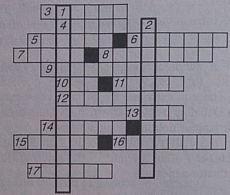


accessible
-
доступный inaccessible
-
regular
- регулярный irregular-
possible
-
возможный impossible
- _
МОДЕЛЬ
10
Основа
глагола + -able,
-ible
-> прилагательное
со значением возможности совершения
действия, обозначаемого глаголом
to
reproduce - воспроизводить
to
permit - разрешать
to interchange - заменять
to break - ломать
to bear - терпеть
to profit - приносить
выгоду
reproducible
- то, что можно воспроизвести, воспроизво
димый
permissible
-
interchangeable
-
breakable
-
bearable
-
profitable
-
МОДЕЛЬ!
1 основа
глагола + -иге, -(иге
-* существите/1ЬНое
to
create
- создавать to
depart
- уезжать to
mix
- смешивать to
please
- доставлять удовольствие to
press
- давить to
sign
— подписывать to
seize
- захватывать Б.
to
accept - принимать
to
eat to drink to recommend to change to solve B.
incomplete
group unimportant problem unnecessary work
creature
- создание
departure
-
mixture
-
pleasure
-
pressure
- _ signature - seizure —
acceptable
conditions - присмлс
мыс
условия
inacceptable
conditions -
eatable
fruit -
drinkable
water -
recommendable
methods -
changeable
conditions -
solvable
problem -
improper
behaviour irresponsible person fuel-air mixture
|
Времена группы Perfect | ||
|
Active |
Passive | |
|
to have + Participle П |
to have + been + Participle 11 | |
|
Present Past Future |
He has received a letter. He had received a letter by yesterday evening. He will have received a letter by tomorrow evening. |
The letter has been received. The letter had been received by yesterday evening. The letter will have been received by tomorrow evening. |
An
Active Generation
SON:
Mummy, do you remember that old vase that has been handed down from
generation to generation in our family?
MOTHER:
Yes, dear, what about it?
SON:
Well, it has been broken by this generation.
Haftmrre
в каждом ряду глагол во времени группы
Perfect
a)
are determining, b) determined, с)
has been determined
a)
have furnished, b) is being furnished, c) furnish
a)
turn, b) were turning, c) has turned
98
|
to write |
gave |
written |
|
to speak |
met |
left |
|
to go |
left |
read [e] |
|
to see |
read [e| |
given |
|
to be |
went |
met |
|
to give |
saw |
spoken |
|
to leave |
spoke |
gone |
|
to read |i:] |
wTOte |
been |
|
to meet |
was/were |
seen |
13.
Поставьте следующие предложения в
PresentPerfectTense, употребив обстоятельства
временя, данные в скобках.
ОБРАЗЕЦ:
I am writing a letter, (already)
have
already written a letter.
John
spoke to me. (already)
He
was reading a book (already)
99
They
will go home (just)
I
saw him (just)
ОБРАЗЕН:
I was in Novgorod last year (never)
I
have never been to Novgorod.
He
is in London, (never)
They
gave me the book, (never)
saw
this film (never)
She
was in Siberia, (never)
ОБРАЗЕЦ:
I lived in Moscow in 1972.
(since)
I
have lived in Moscow since 1972.
did
not meet you in Moscow in 1976. (since)
They
did not speak English last year, (since)
I
did not see her there in September, (since)
She
did not read this book in her childhood. (since)\
ОБРАЗЕЦ
Nick
is trying to leain driving, (this
year)
Nick
has tried to learn driving this year.
13
Your
friends are writing a letter to you. (this
week)
He
is leaving for Moscow, (this
month)
am
learning grammar rules, (today)
They
are finishing their work, (this
year)
Проанализируйте
функции глаголов
to
be
и to
have
и переведите
их
на русский
язык. . ■
. < .. ||м *
а) 1.
These experiments are regularly carried out in our lab.
This
experiment was successfully carried out a few years ago.
The
experiment will be carried out in December.
б) 4.
According
to the information wc have, the experiment is being
carried
out in our lab.
The
experiment has been carried out successfully, and the results will
soon be published.
The
experiment has to be carried out twice.
The
experiment is to be carried out in December.
15.1
IcfOMjurrt
преиохеш на русский язык» обращая
внимание
на время, в котором стогт сказуемое.
1
I have
attended lectures on history since May.
attended
lectures on history in May.
He
has entered the Institute this year.
He
entered the Institute last year.
Have
you passed your examination?
Did
you pass your examination on Friday well?
100
He
has already returned to Moscow.
He
returned to Moscow five days ago.
They
haven’t received any good results.
They
didn’t receive any good results when they worked with this type
of equipment.
The
temperature has been maintained at the point of 20 degrees since
the beginning of the experiment.
During
the experiment the temperature was maintained at the point of 20
degrees.
Has
the new apparatus been already installed in the laboratory?
When
was the new apparatus installed in the laboratory?
The
new apparatus had already been installed when
the
delegation arrived.
Употребите
глагол в скобках в нужном времени
активного кли пассивного залога.
Затем
переведите предложения. 4
Не
... (to
be interested)
in history since his childhood.
The
positive results ... (to
be obtained)
until a more powerful apparatus was installed.
They
... (to
determine)
the main properties of the substance.
The
explanation of these strange facts ... (to
be given)
yet.
He
... (to
be offered)
a very interesting job at that Institute.
All
the necessary information ... (to
be stored)
in the computer.
After
careful consideration your report... (to
be published)
in one of the forthcoming issues of the journal.
The
problem of the future of human civilization on the Earth is ... (to
be studied)
by the scientists throughout the world.
LISTENING
PRACTICE
■)
Listen to the story “Uncle Philip” and be ready to answer the
following
questions.
Who was uncle Philip? What did uncle Philip do for a living?
What was he famous for?
Who did he send for when he was dying?
What did he say to Tom?
What was written in the letter?
Why did uncle Philip decide to act in this way?
Can you think of any plan for opening the box?

101
Retell
the story.
You
are Tom. Tell us what you know about your uncle and his decision to
leave his fortune to you.
You
know there are whole families who devoted their lives to science.
The people this story is about worked in different fields of
science and perhaps some of the names are familiar to you, but you
may not know that all of them were relatives.
Listen
to the text “A Family of Scientists” and fill in the chart.
stands
Гог a man
stands
for a woman
Check
your answers with the teacher or your groupmates.
Read
the transcript on p. 424. Look up the words you do not know in your
dictionary.
ORAL
PRACTICE
Topic.
The
scientist Vd like a new street to be named after.
In
a new district of your town a new street has just been built. The
people of the town are now discussing what name should be given to
it. You believe that the street should be named after a scientist.
Try to convince the jury. In your speech present information on:
the
name of the scientist you would like the street to be named after;
where
and when he/she was bom and worked;
the
field of science the scientist worked in;
the
discovery or invention he/she made;
102
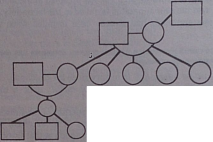


where
the results of his/her work are
used
now;
why
you have chosen this scientist.
Pairwork.
On his way to the institute Paul meets Michael, one of his friends.
Listen
to their conversation.
MICHAEL:
Look here, Paul, we are going to give a party next week. Would you
like to come?
PAUL:
Thank you. With pleasure. Who else are you going to invite? MICHAEL:
1 think Ann and Julia will come and some boys from my group. 1 had
to invite my cousin Philip. He is such a bore, but my mother insists
on it.
PAUL:
Don’t worry. I’m sure we’re going to have a good time. I have
some new pop compact discs. We’ll listen to music and dancc.
MICHAEL:
O.K.
Complete
the dialogues. I.A.:2.A.:.........
B.:
Thank you. With pleasure. B.:
Tom and Kate will come.
A.: What
are we going to do?
A: 3.
A.:....
:
Don’t worry.
A:
3*
Think of some good questions for the following answers. The answers
needn’t be true. Twice.
It’s
very simple.
It’s
very difficult for me.
Both
you and me.
Very
soon.
In
a store-room.
In
the space.
8-
The doctor.
In
France.
Throughout
the world.
On
Sunday Peter is giving a birthday party. Now he is going to discuss
the list of guests with his mother (father). Student A
takes the part of Peter and student В
the part of Peter’s mother (father).
103
|
1. Some professions are |
1. Women are as clever as men |
|
dangerous for women’s health. |
and have equal rights to choose a profession. |
|
2. Some jobs can be done by men |
2. Men and women should work |
|
and women (a nurse, a |
side by side in all walks of |
|
teacher, etc.), some only by men (a spaceman, a captain of a ship, etc.). 3. Some professions don’t leave women time to look after children. |
life. |
|
|
Group 1 |
Group 2 |
Group 3 |
Group 4 | |
|
There are some professions which are only for men or women. |
|
|
|
| |
|
There are no professions which are only for men or women. |
|
|
|
| |
|
about each: |
| ||||
|
a plumber |
a book-keeper | ||||
|
a fireman |
a shop-assistant | ||||
|
an officer |
v j a postman | ||||
|
a doctor |
a nurse | ||||
|
a cook |
a secretary | ||||
|
a poet |
an engineer | ||||
|
a pilot |
a teacher | ||||
|
a butcher |
a pianist | ||||
READING
PRACTICE
1.
a) Read the names of the different women and say what they are
famous for, matching the names on the left with the professions on
the right.
Madonna
Jane Austen Marie Curie Sofia Kovalevskaya Florence Nightingale Jane
Fonda
Valentina
Tereshkova Margaret Thatcher
a
scientist a mathematician
a
founder of the nursing profession a cosmonaut a writer a singer a
politician a film star
the
creator of aerobics
Below
is a text about one of these women — Marie Curie. Read the text
and find a suitable title for each part of the text from the list
below.
Experiments
with uranium.
Marie
lived to see the completion of her work on radioactivity.
Marie
and Pierre discovered a new element..
105

Marie’s
youth.
Student’s
life in Paris.
Pierre
Curie.
Marie
and Pierre get married.
Experiments
with pitchblende.
TEXT
4A
MARIE
CURIE AND THE DISCOVERY OF RADIUM
Marie
Curie was bom in Warsaw on 7 November, 1867. Her father was a
teacher of science and mathematics in a school in the town, and
from him little Maria Sklodowska - which was her Polish name -
learned her first lessons in science.1
Maria’s wish was to study at the Sorbonne in Paris, and after
many years of waiting she finally left her native land in 1891.
In
Paris Maria began a course of hard study and simple living. She
determined to work for two Master’s degrees - one in Physics, the
other in Mathematics. Thus she had to work twice as hard as the
ordinary student. Yet she had scarcely enough money to live on. She
lived in the poorest quarter of Paris. Night after night, after her
hard day’s work at the University, she got to her poorly
furnished room and worked at her books steadily for hours.
Sometimes she had no more than a bag of cherries. Though she was
often weak and ill, she worked in this way for four years. She had
chosen her course and nothing could turn her from it.
Among
the many scientists Maria met and worked with in Paris was Pierre
Curie. Pierre Curie, bom in 1859 in Paris, was the son of a doctor,
and from early childhood he had been fascinated by science.
At
sixteen he was a Bachelor of Science, and he took his Master's
degree in Physics when he was eighteen. When he met Maria Sklodowska
he was thirty-five years old and was famous throughout Europe for
his discoveries in magnetism. But in spite of the honour he had
brought to France by his discoveries, the French Government could
only give him a
very
small salary as a reward, and the University of Parisrefused him a
laboratory of his own for his research.
Pierre
Curie and Maria Sklodowska, both of whom loved science more than
anything else, very soon became the closest friends. They worked
together constantly and discussed many problems of their
researches. After little more than a year they fell in love with
each other, and in 1895 Maria Sklodowska became Mme. Curie. Theirs
was not only to be a very happy marriage but also one of the
greatest scientific partnerships.
Marie
had been the greatest woman-scientist of her day but she was a
mother too, a very loving one. There were their two little girls,
Irene and Eve.
106
By
this time Mme. Curie had obtained her Master’s degree in Physics
and Mathematics, and was busy with researches on steel. She now
wished to obtain a Doctor’s degree. For this it was necessary to
offer to the examiners a special study, called a thesis.2
For
some time Pierre Curie had been interested in the work of a French
scientist named Becquerel. There is a rare metal called uranium
which, as Becquerel discovered, emits rays very much like X-rays.
These rays made marks on a photographic plate when it was wrapped in
black paper. The Curies got interested in these rays of uranium.
What caused them? How strong were they? There were many such
questions that puzzled Marie Curie and her husband. Here, they
decided, was the very subject for Marie’s Doctor’s thesis.
The
research was carried out under great difficulty. Mme. Curie had to
use an old store-room at the University as her laboratory - she was
refused a better room. It was cold, tjiere was no proper apparatus
and very little space for research work. Soon she discovered that
the rays of uranium were like no other known rays.
Marie
Curie wanted to find out if other chemical substances might emit
similar rays. So she began to examine every known chemical
substance. Once after repeating her experiments time after time she
found that a mineral called pitchblende3
emitted much more powerful rays than any she had already found.
Now,
an element is a chemical substance which so far as is known cannot
be split up into other substances. As Mme. Curie had examined every
known chemical element and none of them had emitted such powerful
rays as pitchblende she could only decide that this mineral must
contain some new element.
Scientists
had declared that every element was already known to them. But all
Mme. Curie’s experiments pointed out that it was not so.
Pitchblende must contain some new and unknown element. There was no
other explanation for the powerful rays which it emitted. At that
moment Pierre Curie stopped his own investigations on the physics
of crystals and joined his wife in her effort to find those more
active unknown chemical elements.
Scientists
call the property of giving out such rays “radioactivity”, and
Mme. Curie decided to call the new element “radium”, because it
was more strongly radioactive than any known metal.
In
1903 Marie and Pierre together with Henry Becquerel were awarded the
Nobel Prize in Physics.
In
1911 Marie received the Nobel Prize in Chemistry. But the second
prize went to her alone for in 1906 Pierre had died tragically in a
traffic
accident.
Ш 107
Mme.
Sktodowska-Cune, the leading woman-scientist, the greatest woman of
her generation, has become the first person to receive a Nobel Prize
twice.
Marie
lived to see her story repeated. Her daughter Irene grew into a
woman with the same interests as her mother’s and she was deeply
interested in her mother’s work. From Marie she learned all about
radiology and chose science for her career. At twenty-nine she
married Frederic Joliot, a brilliant scientist at the Institute of
Radium, which her parents had founded.
Together
the Joliot-Curies carried on the research work that Irene’s mother
had begun. In 1935 Irene and-her husband won the Nobel Prize for
their discovery of artificial radioactivity.
So,
Marie lived to see the completion of the great work, but she died on
the eve of the award.
NOTES
TO THE TEXT
science
- зд.
естественные науки
thesis
- зд.
диссертация
pitchblende
-
уранит
(урановая смолка)
'
.”*91
Find
the passages describing Pierre Curie’s scientific career and
Becquerel’s experiments and translate them into Russian.
Read
aloud the passage about Pierre Curie's career. (Approximate time of
reading is one minute.)
Find
in the text sentences with Perfect Tenses and explain why these
tenses are used.
Find
in \the text the verbs which can be used to describe the main
events in Marie's life.
a)
Skim the text to understand what it is about Time your reading. It
is good if you can read it for 8 minutes. (70 words per minute.)
TEXT
4В
MADAME
TUSSAUD
For
over 200 years, Madame Tussaud’s exhibition of wax figures has
been
one of Britain’s most popular attractions. The exhibition has
constantly
developed and now visitors can see the world’s public figures,
including men and women who have made a lasting impact on our lives,
Kings and Queens, great statesmen, religious leaders, superstars
past and
present
who have become legends.
108
But
the story of Madamo Tussaud is as impressive as hor exhibition Two
things about her are especially interesting First, she spent her
early years in the turmoil of the French Revolution and came to meet
many of its characters, and perhaps more unusually, she succeeded in
business at a time when women were seldom involved in the world of
commerce.
Madame
Tussaud whose first name is Marie was bom in France in 1761. Her
fether, a soldier, was killed in battle two months before her birth
She lived with the mother who worked as a housekeeper for the doctor
who had a wonderful skill of modelling anatomical subjects in wax.
Soon Mane and her mother with the doctor Curtius moved to Paris.
France
was approaching the Revolution. Dr. Curtius’s house became a
meeting place of philosophers, writers and revolutionaries. Marie
soon discovered she had a talent for observation and remembering the
details of faces.
Dr.
Curtius acted as a teacher to Marie, schooling her in the techniques
of wax portraits. Thanks to him she used a scientific approach in
wax portraiture. She was soon allowed to model the great figures of
the time. Among them were Francois Voltaire and the American
statesman Benjamin Franklin. Dr. Curtius’s exhibition was
patronized by the French Royal family and Marie was invited to the
Royal Court.
At
the time of the revolution Marie and her mother were imprisoned for
some time. Later Marie was asked to prepare the death masks of
French aristocrats who had been executed - among them the King and
the Queen.
The
time of terror came to an end. In 1794 the doctor died and Marie
inherited the business which had grown under her influence.
In
the following years she married a French engineer, Francois Tussaud
and by 1800 had given birth to three children: a daughter who died
and two sons. It was difficult for the exhibition to survive in
France and in 1802 Marie Tussaud made a monumental decision. She
would leave her husband and baby son in Paris while she and her
elder son would tour the exhibition round the British Isles. ■ ЭШ
-
Marie
was to see neither France nor her husband again. She spent the D0xt
33 years travelling in Great Britain. Later her other son joined
her. Beth of her sons were interested in the business. The travels
ended in 1835 ^hen Madame Tussaud’s exhibition found a permanent
home in London. jj®ce that there have been fires and disasters but
many new figures have
added
to the collection. This unusual woman died in 1884 at the age of
You
can see her remarkable self-portrait in Museum as well.
^&**crlbe
the pictures on pp. 110-111 using the text and the captions.
109
Madame
Tussaud shown taking a death mask from the severed head of Marie
Antoinette.
Catalogue
of Madame Tussaud's Exhibition (1897).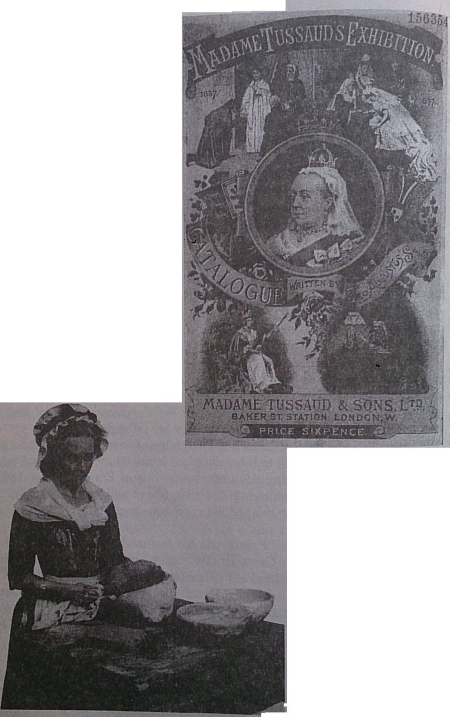
The
Market Place, Hull, 1834. Madame Tussaud’s origins in Britain were
as a a travelling exhibition, touring the length and breadth of the
British Isles.
Madame
Tussaud's building since 1884 (Baker Street, London).
Jean
Paul Marat (1743-93), j celebrated French physician, scientist and
journalist who
joined
the French Revolution
in
1789. Assassinated by Charlotte Corday, a royalist, in his bath.This
death mask was moulded by Madame Tussaud
herself
and is an important reminder of the °n$ns of the exhibition^
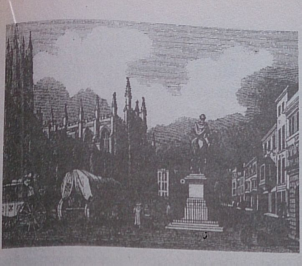
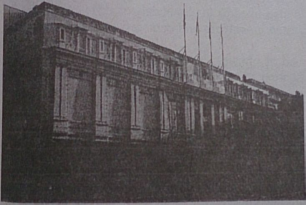
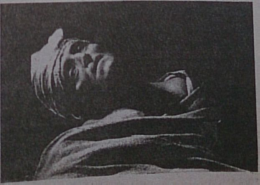
3.
Read the text to find answers to the given questions.
TEXT4C
ERNEST
RUTHERFORD
How
did Ernest Rutherford’s father earn his living?
Ernest
Rutherford was bom on August 30, 1871, in New Zealand, ini the
family of English settlers.
In
1861 gold was found in New Zealand and many foreigners came to live
there. Industry began to develop, the country began to increase its
export.
Ernest’s
father earned his living by bridge-building and other construction
work required in the country at that period. At the same time he
carried on small-scale farming!
In
what subjects did Ernest distinguish himself (отличился)?
Little
Ernest was the fourth child in the family. When the boy was five he
was sent to primary school. After finishing primary school he went
to the secondary school. He liked to read at school very much. His
favourite writer was Charles Dickens. He also liked to make models
of different machines. He was particularly interested in watches and
cameras, he even constructed a camera himself.
At
school he was good at physics, mathematics, English, French and
Latin. He paid much attention to chemistry too. Ernest became the
best pupil at school. At the age of 19 he finished school and
entered the New Zealand University.
In
what activities did Rutherford take part when he was a student?
At
the University Ernest Rutherford was one of the most talented i
students. He worked hard and took an active part in the work of the
Scientific Society of the University. But he was also fond of sports
and took part in the students’ sport competitions.
At
one of the meetings of the Scientific Society he made his scientific
report “The Evolution of Elements”. At the same time he began
his research work. For his talented scientific research he got a
prize. After graduation Rutherford wait to Cambridge where he
continued his investigations (исследования).
What
did Rutherford do besides research work?
Some
years later Rutherford moved to Canada to continue his research
work
at the University in Montreal. Besides his successful researches he
also lectured a lot at the leading Universities of thfe United
States and England.
112
|
Name (country) |
Problem |
Event |
Place |
Date/time |
|
1. Prof Petrov I. (Russia) |
computers and microprocessors |
|
|
|
|
2. Dr. La Roche (France) |
sport cars |
|
|
|
|
3. Dr. J. Smith (the USA) |
history of automobile industry |
|
|
|
TEXT
4D COMING
EVENTS
САЬ/САМ
(Computer Aided Design/Computer Aided Manufacturing) International
Show (8-10 January)
ц.
International show, organized by International Exhibitions to be
held in gingham. Further information from International Exhibitions
Ltd, 8 erbal
Hill, London.
113
Glasgow
Museum of Transport (28 January)
A
visit is being arranged to Museum of Transport, 25 Albert Drive,
Glasgow by Scottish AD Centre. Assemble at 6 p.m. but persons
wishing to attend should first contact Jim Douglas on 041 332 6811
as numbers are limited.
Henry
Royce - mechanic (31 January)
Lecture
to be presented by Donald Bestow at a meeting organized jointly
between Western AD Centre and Western Branch to be held in the
Queen’s Building University of Bristol, commencing 7 p.m.
Subject
to be announced (5 February)
A
lecture organized by Birmingham AD Centre will be announced in
Mechanical Engineering News. It is to be held at the Chamber of
Industry and Commerce. Further information from R.E. Smith.
The
history of the VW Beetle (11 February)
Lecture
to be presented by Jonathan Wood, Automobile Historian, at a meeting
organized by Derby AD Centre to be held in Room U 020,; Brockington
Bldg, University of Loughborough, commencing 6.15 p.m.
Microprocessors
in fluid power engineering (3-4 February)
Conference
organized by the institution of Mechanical Engineers to be held at
the University of Bath, further information from the Conference
Department.
Computer-aided
design (12-14 January)
A
short course for engineers and draughtsmen organized by the IMechE
is to be held at the Centre of Engineering Design, Cranfield
Institute of Technology. Contact the Courses Officer for further
information.
Jaguar
sports cars (25 January)
Lecture
to be presented by Mr Randle of Jaguar Cars Ltd at a meeting
organized by Luton AD Centre to be held at the Sun Hotel, Sun
Street, Hitchin, commencing 8 p.m.
Robot
’90s (2-5 February) [
14th
International Exhibition Symposium on Industrial Robots
organized
by the Swedish Trade Fair Foundation to be held in Gothenburg,
Sweden.
Further information from the Swedish Fair Foundation, Goteborg,
Sweden.
Sir
Henry Royce Memorial Lecture (15 February)
Lecture,
organized by IMechE AD Centre at 1 Birdcage Walk, London,
to
be given by Ing Sergio Pininfanna at 6 p.m.
114
Students9
Project - presentation evening (15 February)
Lecture
to be given by undergraduates from local educational establishments,
organized by Derby AD Centre to be held in Room U 020, Brockington
Building, University of Technology, Loughborough, commencing 5.45
for 6.15 p.m. Further information from C.E. Hunter.
Racing
Jaguars (16 January)
Lecture
to be presented by Mr. J. Randle, Director, Product Engineering,
Jaguar Cars Ltd at a meeting organized jointly between IProd E and
NM Branch NP YMS by North Eastern AD Centre to be held at the
Metropole Hotel, Leeds, commencing 7.15 p.m.
Formula
one motor racing (25 January)
Lecture
to be presented by Mr S. Hallam of Lotus Cars at a meeting organized
by Western AD Centre to be held at the Queens Buildings, University
of Bristol, commencing 7 p.m.
WRITING
PRACTICE
In
Dreamland you decided to stay at the Royal Hotel. Complete the
information
on the form in order to book rooms for yourself and your
friend.
Think of the most suitable dates.
115

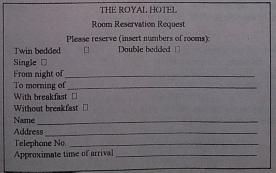
VOCABULARY
LIST
add
(v)
among
(prp)
be
interested (v)
both
(prori)
carry
out (v)
cause
Ш
n)
close
(a)
contain
(v)
determine
(v)
discovery
(n)
else
(adv)
enough
(adv)
explanation
(n)
furnish
(v)
get
(v)
land
(n)
mark
(n)
meet
(v)
obtain
(v)
offer
(v)
once
(adv)
ordinary
(a)
point
out (v)
powerful
(a)
proper
(a)
property
(n)
ray
(n)
refuse
(v)
research
(n)
scarcely
(adv)
science
(n)
similar
(a)
simple
(a)
so
far as (q)
soon
(adv)
space
(n)
split
(v)
steadily
(adv)
store
(v)
strong
(a)
substance
(n)
though
(cj)
throughout
(adv)
turn
(v,
n)
twice
(adv)
